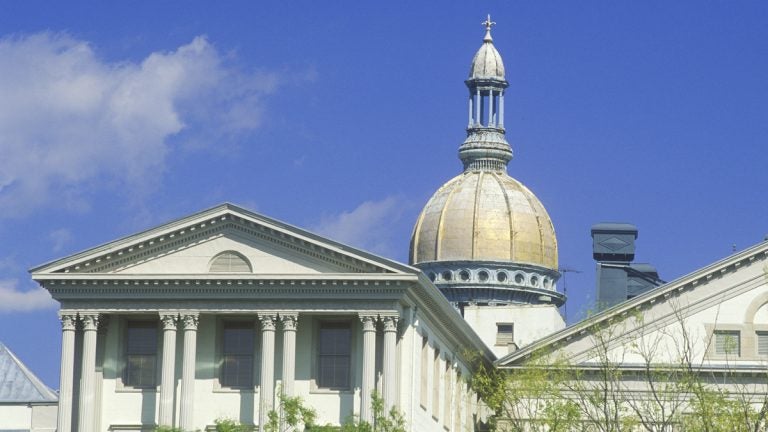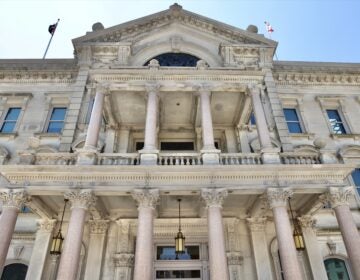New Jersey’s charter school law is too restrictive

Last week the National Alliance for Public Charter Schools (NAPCS) published a new study, “The Health of the Public Charter School Movement: a State-by-State Analysis.” No worries here: according to NAPCS’s data, New Jersey is in fine fettle, ranking fourth among twenty-six states. (The analyses are restricted to states that serve more than one percent of students through public charters.)
However, a closer look at our scores reveals an infirmity that belies our glowing complexion: N.J.’s charter school sector soldiers in spite of the Legislative failure to ameliorate our outdated, pockmarked charter school law. Prognosis is guarded.
NAPCS’s new report, a follow-up to its research on model public school laws, creates a rubric based on 11 factors that indicate a healthy charter school environment. These include increases in the number of children served by these independent public schools; proportional representation of students who qualify for free and reduced lunch; proportional representation of children with disabilities and English language learner status; innovative practices like extended school calendars and higher education courses; rate of charter school closures.
N.J. is a star, lagging behind only the District of Columbia, Michigan, and Louisiana. (Pennsylvania, by the way, is ranked an embarrassing twenty-third out of the twenty-six states, largely because of poor student performance, insufficient accountability, and inadequate funding.) N.J.’s stellar scores are generated by three factors:
Between 2009 and 2014, N.J. opened charter schools at the rate of 9.7 percent (38 charters opened) and closed them at the rate of 3.3 percent (12 charters were closed by the State). This is considered healthy growth.
“On average, public charter schools students exhibited significantly higher academic growth when compared with traditional school students between 2007-09 and 2010-11.” The analysis correlates this growth with expanded school days and years, as well as incorporation of innovative instructional practices.
Our charter schools educate 40 percent more minority students compared with typical schools and 34 percent more students eligible for free and reduced lunch compared with typical schools (Nota bene: These statistics, while true, ignore an ugly reality of N.J.’s public schools. Charter schools, primarily situated in poor urban areas, enroll many more higher-needs children because our districts and municipalities are so segregated, largely as a result of inadequate affordable housing.)
But here’s where we flunk:
Our charter school sector is still tiny, educating only 2 percent of the state’s public school students.
The best charter school laws mandate multiple authorizers: some assortment of local school boards, universities and colleges, special commissions. But in New Jersey the sole source of authorization of new charters is the Commissioner of Education.
Our charter schools lack equitable funding as well as “adequate autonomy.”
These first two areas of weakness cited by NACPS are, of course, related. N.J.’s charter school sector is tiny because our only authorizer is the Commissioner. But internal (and eternally silly) Jersey politics — local control fanatics and NIMBY folk, those who fall for the canard that charter school growth signals “privatization” even though traditional schools have always relied heavily on the private sector for everything from technology to paper goods, conspiracy theorists who ascribe to the myth that charter schools exist for the sole purpose of enriching evil Wall Street types — seems to preclude improvements to our twenty-year old charter school law.
Talk about gridlock. The Legislature currently has three proposals in the pipeline for improvements to our 21 year-old charter school law, and all include multiple authorizers. Everyone knows that this change will improve oversight and governance. But each new bill proposal seems to sicken upon arrival, infected by the tumult in Newark and Camden where more and more parents are electing to enroll their children in charters and where school choice opponents fear that a better law might encourage healthier growth.
Without Legislative commitment to improve this law, charter schools remain the Blanche DuBois of New Jersey’s public school system: always having to rely on the kindness of strangers, or whoever happens to be governor or commissioner. Well-conceived laws supersede transience political posturing. But political posturing waylays well-conceived laws.
______________________________________________
Laura Waters is vice president of the Lawrence Township School Board in Mercer County. She also writes about New Jersey’s public education on her blog NJ Left Behind. Follow her on Twitter @NJLeftbehind.
WHYY is your source for fact-based, in-depth journalism and information. As a nonprofit organization, we rely on financial support from readers like you. Please give today.





